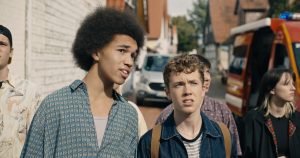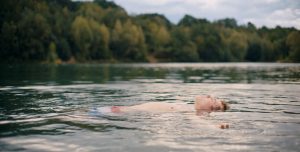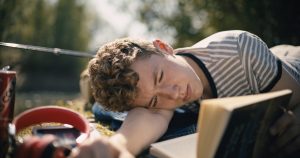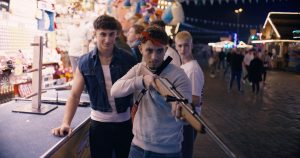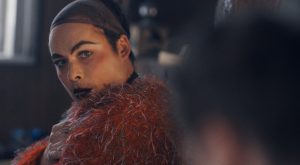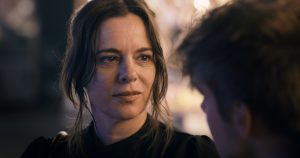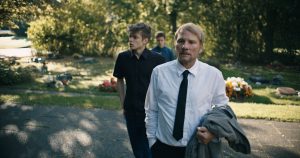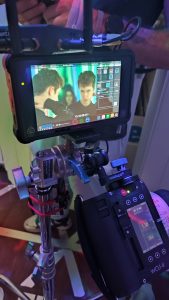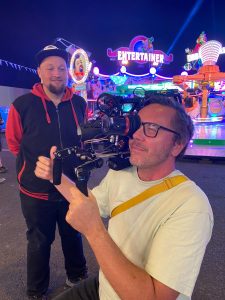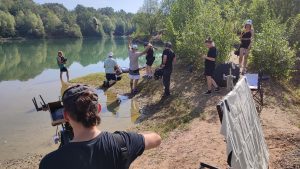FREE


2 0 2 5 | J U N I F I L M | 110 M I N . | C O L O R | F E A T U R E
In a sweltering small town, 16-year-old Sebastian’s quiet summer is shattered when Kolja, the charismatic brother he never knew existed, suddenly moves in and effortlessly captivates everyone around him. As the brothers are forced into closeness, an unexpected moment ignites emotions that upend Sebastian’s inner world and destabilize his family’s fragile normality.
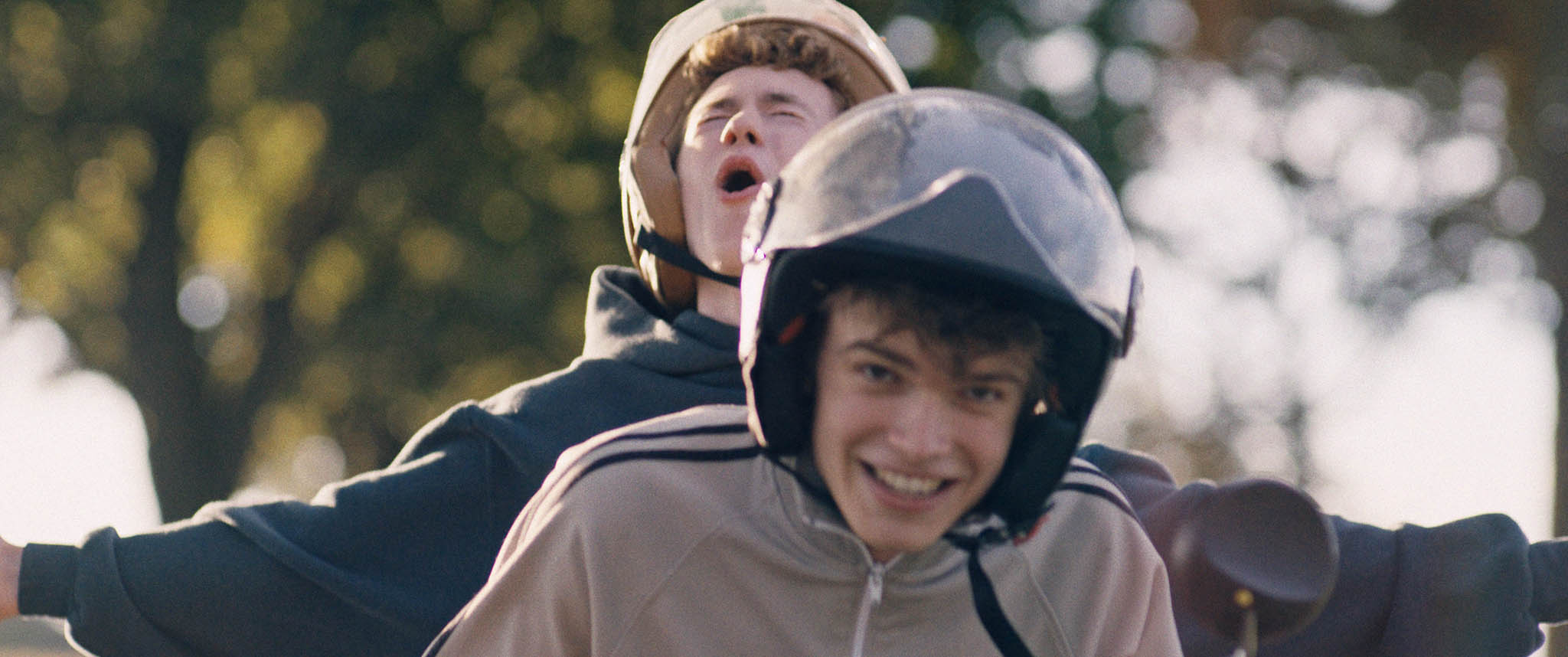
▶︎ STORY · PRODUCTION · TEAM · TRAILER · GALLERY
PRODUCTION
English: FREE (original working title: Blackbird) marks the cinema-feature debut of writer & director Max Hegewald. The screenplay for FREE was developed over many years, rewarded at the Filmfest Emden in 2018 and the film was shot in Lower Saxony in the autumn of 2023. The production was helmed by JUNIFILM GmbH, based in Hanover. FREE was made in collaboration with Saarländischer Rundfunk and Bremedia Produktion GmbH, with funding provided by nordmedia Film- und Mediengesellschaft Niedersachsen/Bremen mbH.
Distribution in German cinemas will be handled by Salzgeber, with a theatrical release planned for late 2025. The film will also air on SR and ARD. In addition, the film will be broadcast on SR and ARD, with world sales handled by Outplay and U.S. distribution by Altered Innocence.
Deutsch: FREE (Arbeitstitel: Blackbird) ist das Kino-Spielfilmdebüt von Autor & Regisseur Max Hegewald. Das Drehbuch zu FREE entwickelte er über viele Jahre hinweg und wurde 2018 auf dem Filmfest Emden prämiert. Die Dreharbeiten fanden im Herbst 2023 in Niedersachsen statt. Produziert wurde der Film von der in Hannover ansässigen JUNIFILM GmbH. Entstanden ist FREE in Zusammenarbeit mit dem Saarländischen Rundfunk und der Bremedia Produktion GmbH, gefördert von der nordmedia Film- und Mediengesellschaft Niedersachsen/Bremen mbH.
Der Kinostart in Deutschland ist für Ende 2025 geplant und wird von Salzgeber realisiert. Darüber hinaus wird der Film auch beim SR und in der ARD ausgestrahlt und ist im Weltvertrieb von Outplay und im Amerikanischen Vertrieb Altered Innocence.
TEAM
Writer & Director: Max Hegewald | Director of Photography: Marius von Felbert | Sound: Swantje Alter | Production Design: Cristine Todorova | Costume Design: Thora Geißler | Production Management: Robert Knoerk | Music: Sebastian Schmidt, Vanessa Donelly | Editor: Brigitte Maria Schmidle Sounddesign: Roman Pogorzelski | Commissioning Editor: Christian Bauer | Co-Producer Bremedia: Heidi Bruns | Producer: Jan Philip Lange
SYNOPSIS
English: The world of 16-year-old Sebastian (Linus Moog) is defined by forests, fields, and the winding roads of a small town gripped by an endless, humid summer. Days drag on at school, while evenings are for hanging out by the lake – smoking weed, drinking beer, and dreaming with his new girlfriend Sarah about a life beyond the sticks.
But when Sebastian’s father Bernd (Oli Bigalke) and mother Vanessa (Annika Kuhl) announce that they’ll be taking in a boy named Kolja (Aurel Klug), everything changes overnight. The kids are left speechless when they learn Sebastian has a brother—a boy who grew up in the city with Sebastian’s birth mother, a woman he never met, and who, after her death, is suddenly moving in with them. Within days, 15-year-old Kolja becomes the newest member of the family, and Sebastian’s world is turned upside down. The whole town is buzzing. Kolja, quiet and striking, quickly enchants everyone around him. Sebastian doesn’t know how to handle his new brother – at once a stranger and yet oddly familiar.
Kolja fits in easily: he’s a hit at school, good at sports, and soon every girl in town has her eye on him. Weeks later, the two brothers find themselves home alone, no longer able to avoid each other. And when there’s nowhere left to hide, something happens that Sebastian could never have seen coming: drawn together by forces they don’t understand, the brothers share an unexpected kiss.What follows is an emotional rollercoaster that tears Sebastian -. and his family – out of the comfort of their small-town routines.
Deutsch: Die Welt des 16-Jährigen Sebastian (Linus Moog) ist umgeben von Wald, Feldern und den Landstraßen einer Kleinstadt und ihrem unnachgiebig schwülen Sommer. Tagsüber wird in der Schule gebüffelt und abends trifft man sich mit den anderen am See, raucht Pott, trinkt Bier und Sebastian träumt mit seiner neuen Freundin Sarah von der Zukunft jenseits der Provinz.
Als Sebastians Vater Bernd (Oli Bigalke) und seine Mutter Vanessa (Annika Kuhl) ihm und seiner kleinen Schwester Lilli (Marlena Strawe) eröffnen, sie würden sich eines Jungen namens Kolja (Aurel Klug) annehmen müssen, verändert sich mit einem Mal alles. Die Kinder sind sprachlos als sie erfahren, dass Sebastian einen Bruder hat, der bei Sebastians leiblicher Mutter, die er nie kennengelernt hat, in der Stadt aufgewachsen ist und nun – nach dem Tod dieser – zu ihnen zieht.
Als der 15-jährige Kolja wenige Tage später zum neuen Familienmitglied wird, steht Sebastians Leben mit einem mal Kopf und die Familie ist das Stadtgespräch schlechthin. Der stille, gutaussehende Kolja schlägt alle um ihn herum in den Bann.Sebastian weiß nicht, wie er mit dem neuen Bruder umgehen soll, sind sich die beiden doch gleichermaßen fremd wie vertraut.
Kolja lebt sich schnell in die Familie ein, ist in der Schule beliebt und gut im Sport. Die Mädchen der Kleinstadt haben allesamt ein Auge auf ihn geworfen. Wochen später sind die Brüder allein zuhause, auf sich gestellt und als es keine Möglichkeit mehr gibt, sich aus dem Weg zu gehen, passiert etwas, das Sebastian weder erahnt hat noch verstehen kann: Die beiden Brüder kommen sich ungewollt näher und aus dem ungewollten Sich-näher- kommen wird ein Kuss.
Alles, was folgt, ist eine Achterbahnfahrt der Gefühle, die Sebastian, aber auch seine Familie, aus dem Kleinstadt-Alltag schleudert.
.
My intention was to tell a story that leaves each viewer with something different and deeply personal. Free explores the boundaries and tensions between freedom, identity, and relationships, and I hope the film invites reflection on family, power, intimacy and distance, love, and sexuality.
– Max Hegewald, Writer & Director
.

